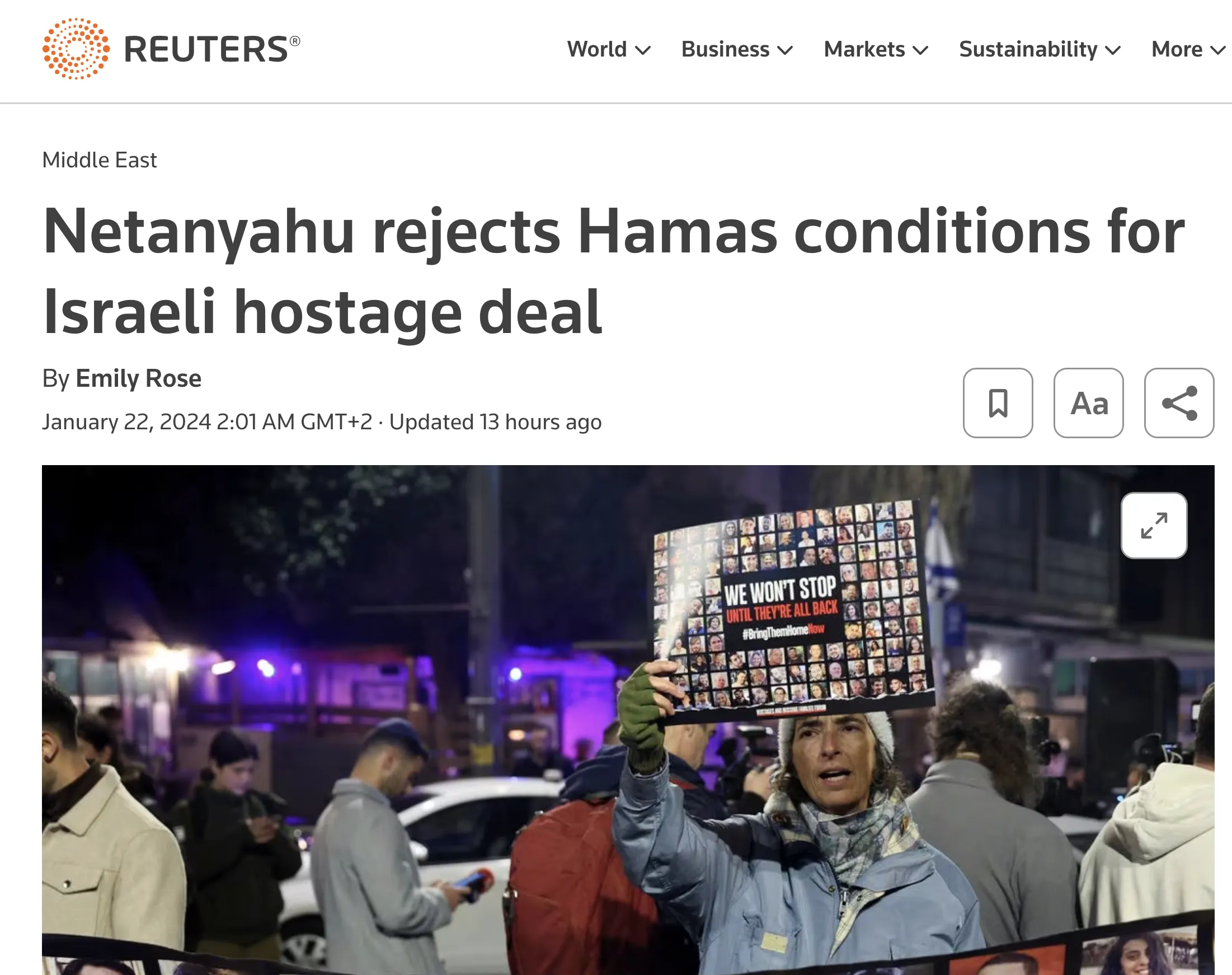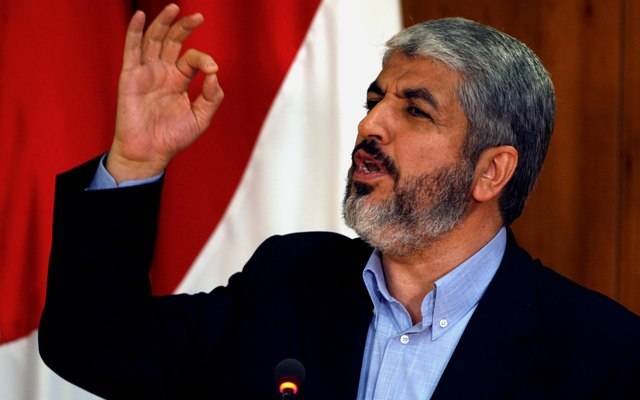Ignoring Hamas’ genocidal ideology, major outlets fail to provide essential context, shaping a misleading narrative that warrants scrutiny.
By Rinat Harash, Honest Reporting
Over 100 days into the war between Israel and Hamas, media outlets have apparently forgotten who started it.
The headlines this week on Israel’s rejection of a Hamas proposal for a ceasefire made the terror group look like an anti-war movement, while the Jewish state has been painted as the aggressor that wishes to prolong everyone’s suffering.
This impression was created by news outlets that have taken at face value Hamas’ suggestion of a ceasefire or its justification for the October 7 attack on Israel that sparked the war, while completely ignoring the group’s genocidal ideology and its leaders’ statements.
Wire Services Ignore Hamas’ Ideology
Reuters, AP and AFP led with the Israeli refusal to end the war. Their reports appeared to be merely informative:


Reuters quoted senior Hamas official Sami Abu Zuhri and Israeli Prime Minister Benjamin Netanyahu.
AP produced a video package showing a statement by Netanyahu, along with some background and details.
AFP published a short report, and also referred to a Hamas document distributed over the weekend “justifying its October 7 attack on Israel.”
But none of these agencies — that are responsible for distributing information to thousands of media outlets worldwide — mentioned that Hamas is ideologically committed to a permanent war against Israel, not a ceasefire.
These wire services should have included, at the very least, some background explaining that Hamas is sworn to the destruction of Israel and that its founding charter calls for holy war against the Jewish state.
Without this context, Hamas is presented as a legitimate political actor making legitimate claims.
Echoing Hamas Propaganda
The coverage of the Hamas document mentioned above is another example of how media sanitized the terror group while making Israel look like a warmonger.
The professionally produced document is an 18-page English pamphlet titled “Our Narrative…Operation Al-Aqsa Flood,” produced by the Hamas media office with an eye to a Western audience.

It includes virulent anti-Israeli propaganda and denials of the atrocities of October 7, when Hamas killed 1,200 people inside Israel, brutalized innocent civilians and took around 240 hostages into Gaza.
The document justifies the monstrosity of this attack with claims like:
The battle of the Palestinian people against occupation and colonialism did not start on Oct. 7, but started 105 years ago, including 30 years of British colonialism and 75 years of Zionist occupation.
Most mainstream media outlets rightly ignored the document.
But, sadly, AFP was not alone in wrapping it into their report on Israel’s rejection of a ceasefire.
Voice of America, in a piece titled “Netanyahu Rejects Hamas’ Call to End Gaza War”, echoed exactly what Hamas wanted media to disseminate:
Hamas on Sunday defended its October 7 terror attack on Israel but admitted to “faults” and called for an end to “Israeli aggression” in Gaza.
In its first public report on the attack that began the war, the militant group said it was a “necessary step” against Israeli occupation of Palestinian territories, and a way to secure the release of Palestinian prisoners.
Giving any kind of platform to Hamas’ “first public report” on its October 7 attack is not only bad journalism, but also an appalling normalization of evil.
Ignoring Hamas’ Arabic Rhetoric
Meanwhile, no media outlet reported that almost in parallel to the distribution of the deceiving talking points in English, Hamas has conveyed completely different messages in Arabic.
In early January, Hamas leader abroad Khaled Meshaal publicly said on a Kuwaiti podcast that “October 7 proved that liberating Palestine from the river to the sea is realistic and has already begun.”
In the same interview, Meshaal also categorically rejected a two-state solution and stated that any Palestinian state is going to be a replacement for Israel.
Yet media that criticized Israel for rejecting a ceasefire also bashed Israeli politicians for coming out against a two-state solution, without mentioning that Hamas publicly opposes it.
Aren’t Meshaal’s statements worth highlighting? Were they deliberately ignored?
Why were global headlines focused on Israel’s rejection of a ceasefire but not on Hamas’ reiteration of its unwavering commitment to war?
Why do journalists seem to lose their sense of hearing when terrorists speak Arabic?
These questions deserve answers because news outlets employ Arabic-speaking producers responsible for monitoring Middle East channels and social media.
But whether media omitted necessary background on Hamas’ genocidal ideology, echoed its propaganda, or ignored what its leaders have said, the result is the same: The continuation of the war has been blamed on the Israelis, not on the bloodthirsty murderers who are devoted to it.
ֿ
